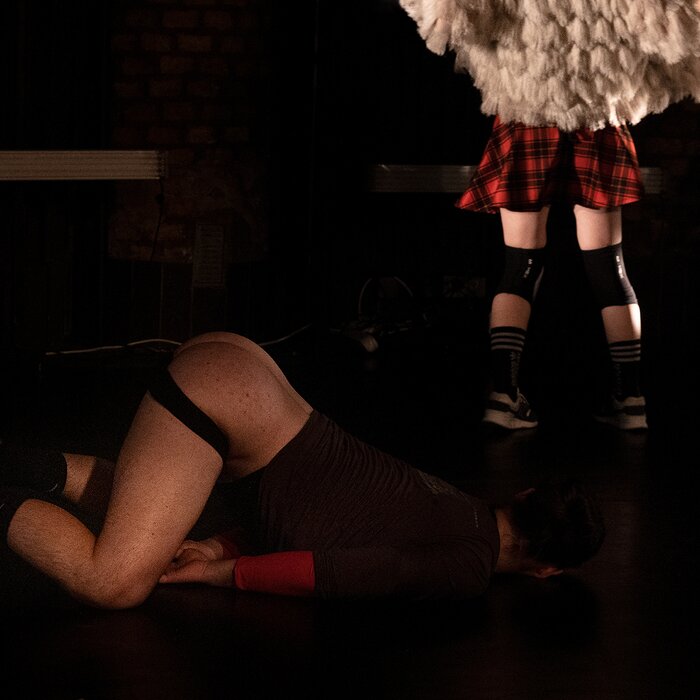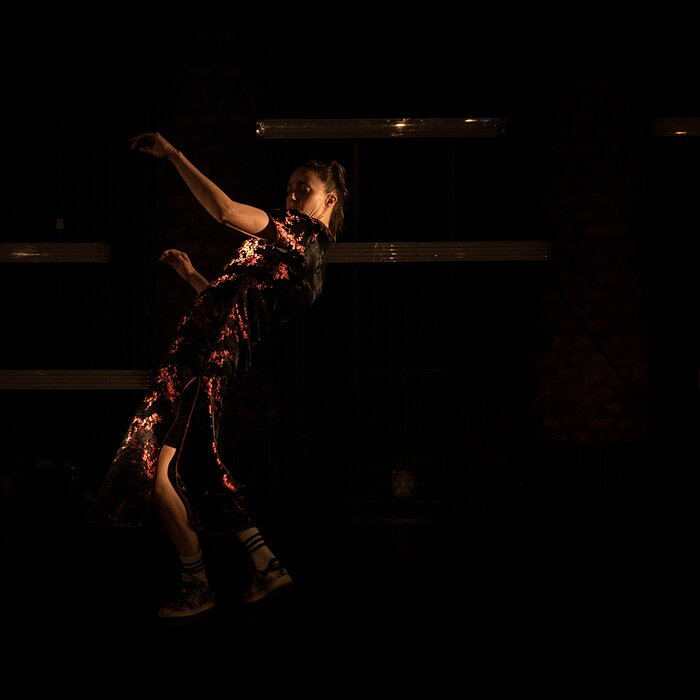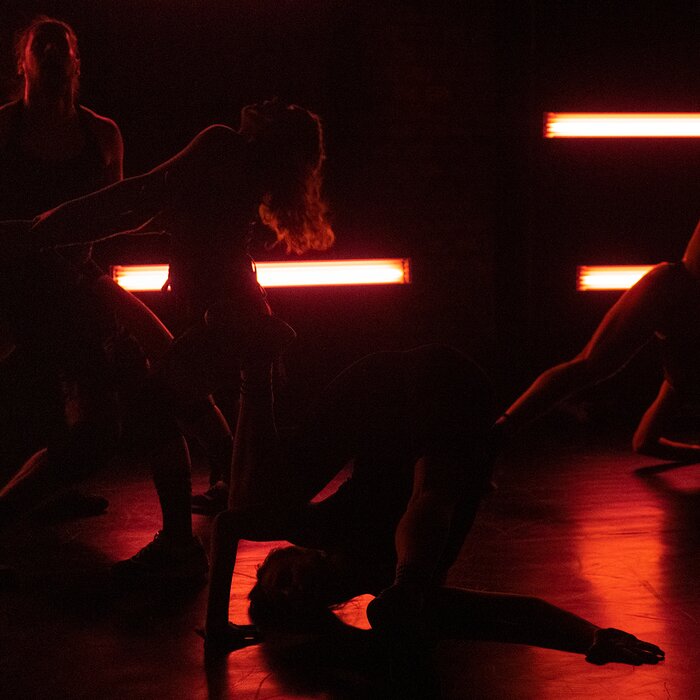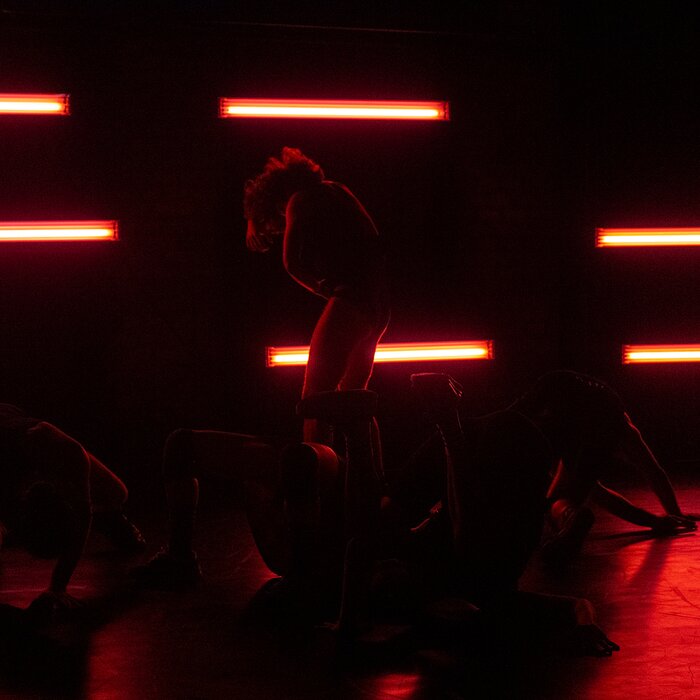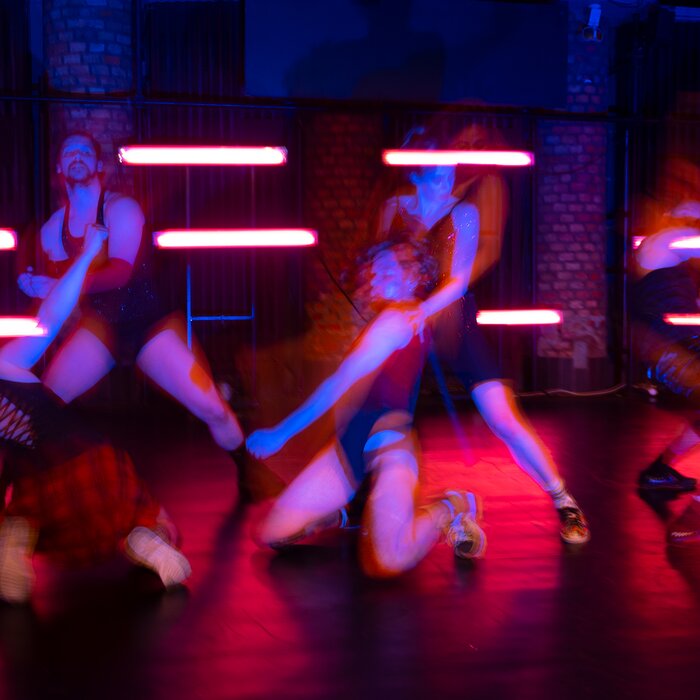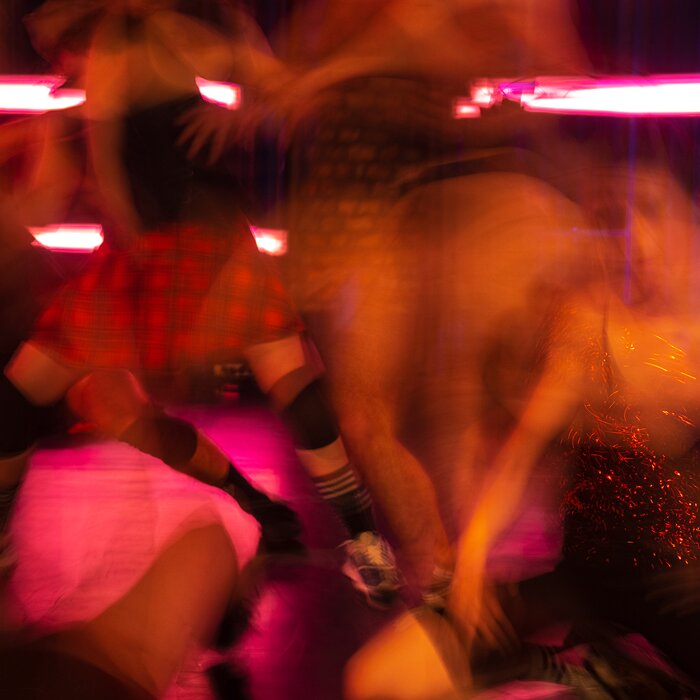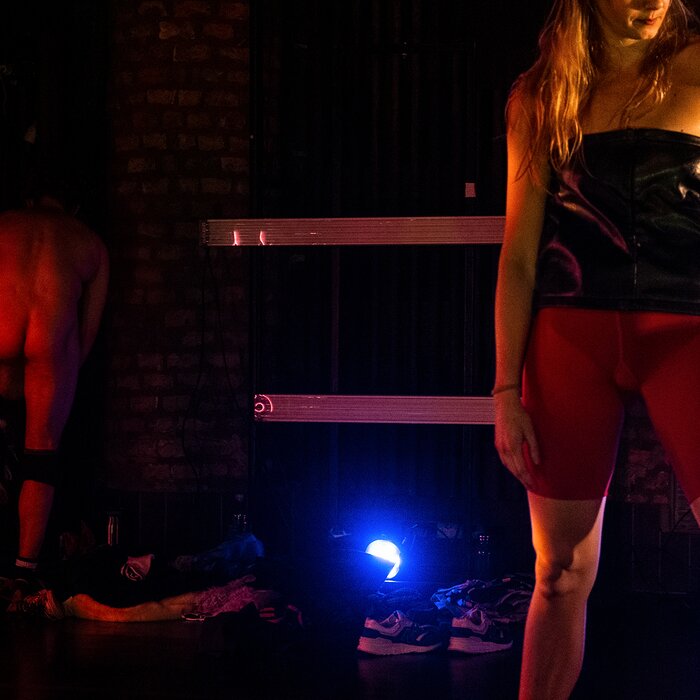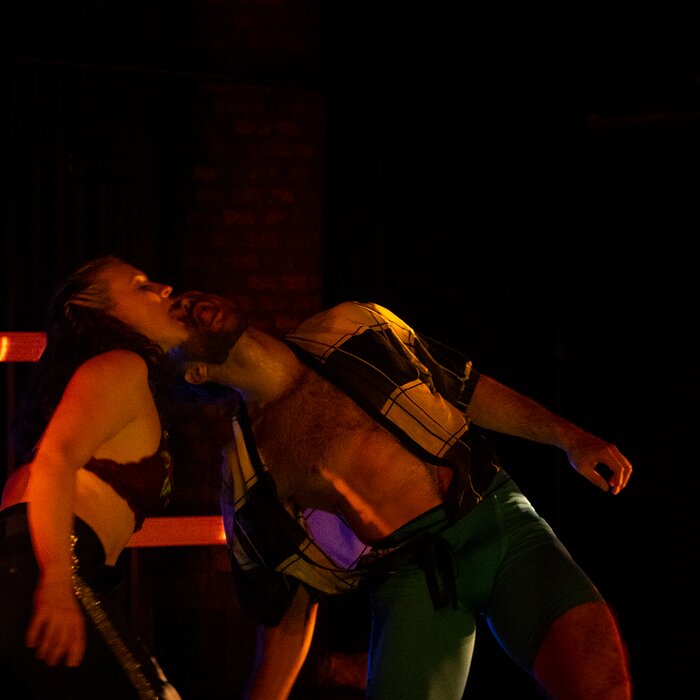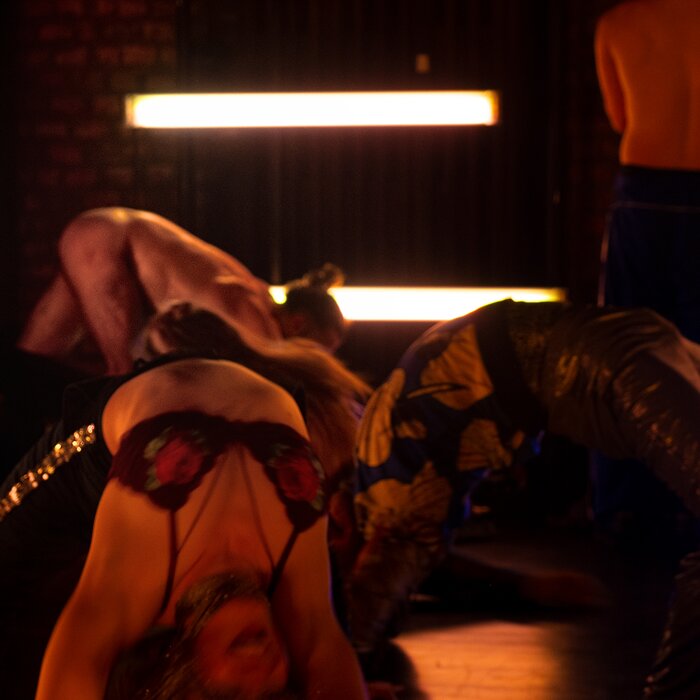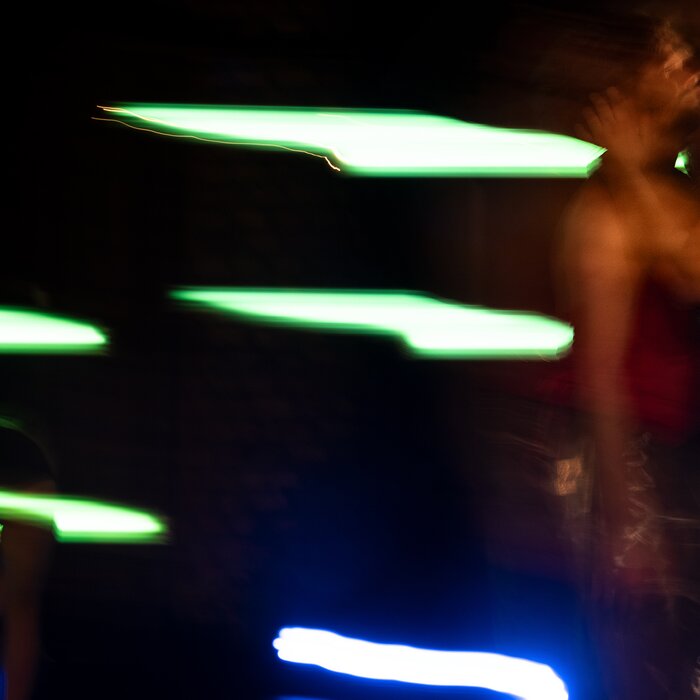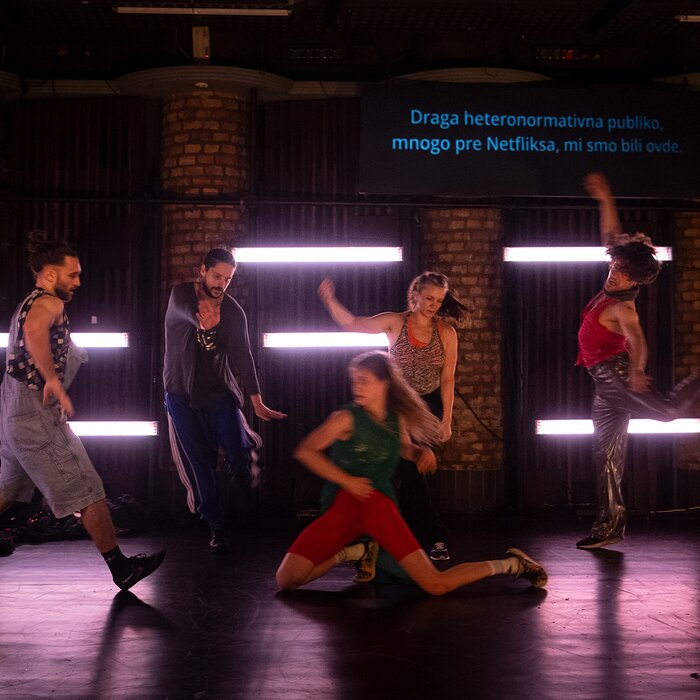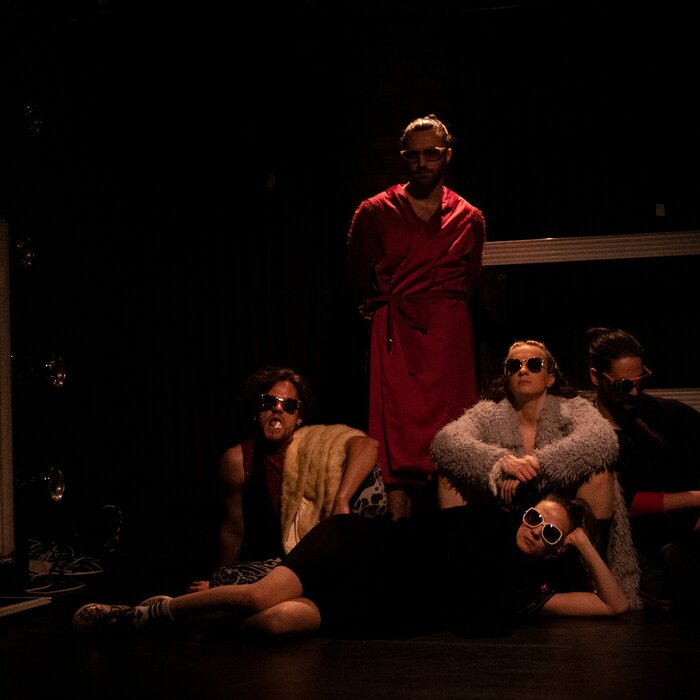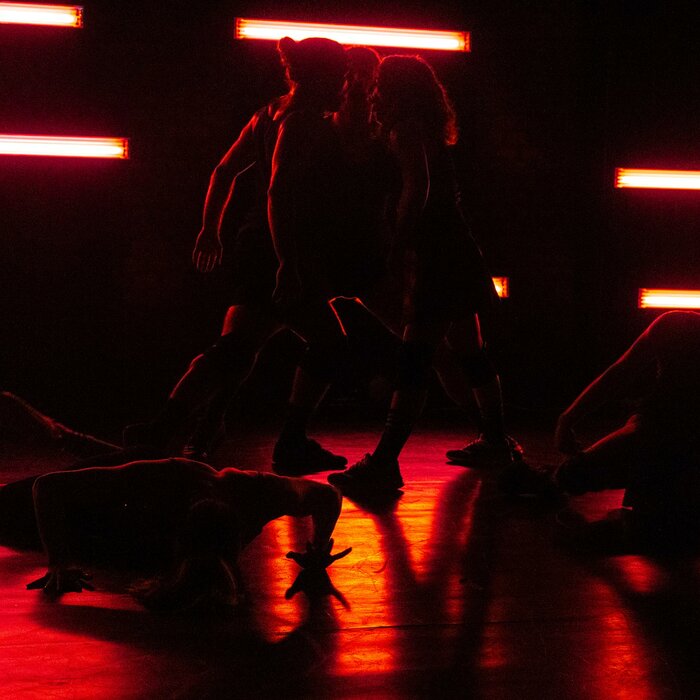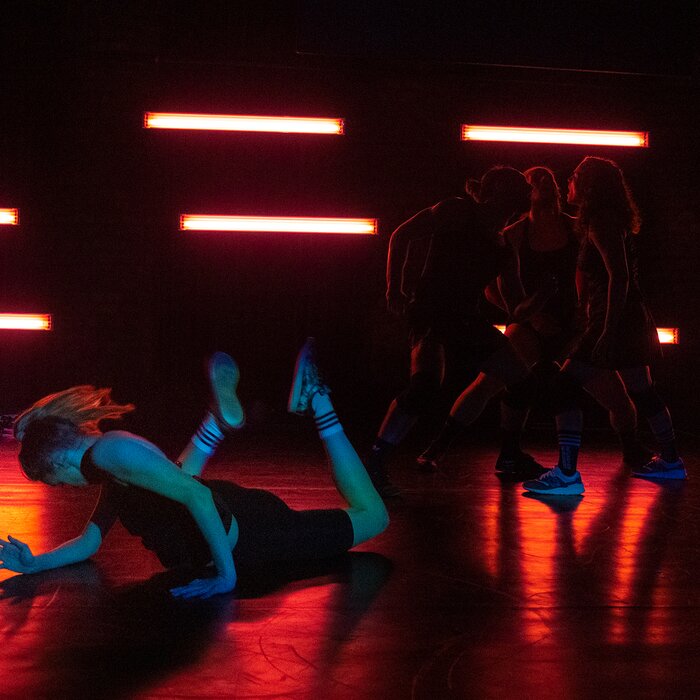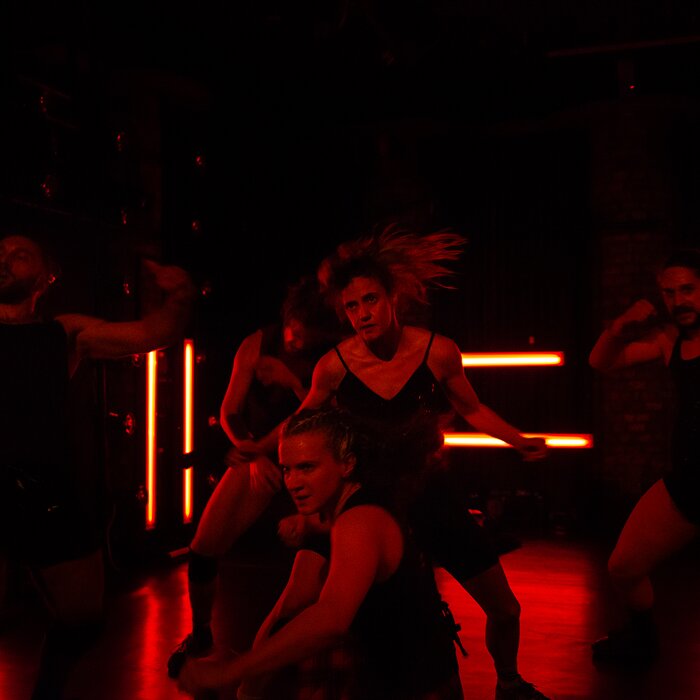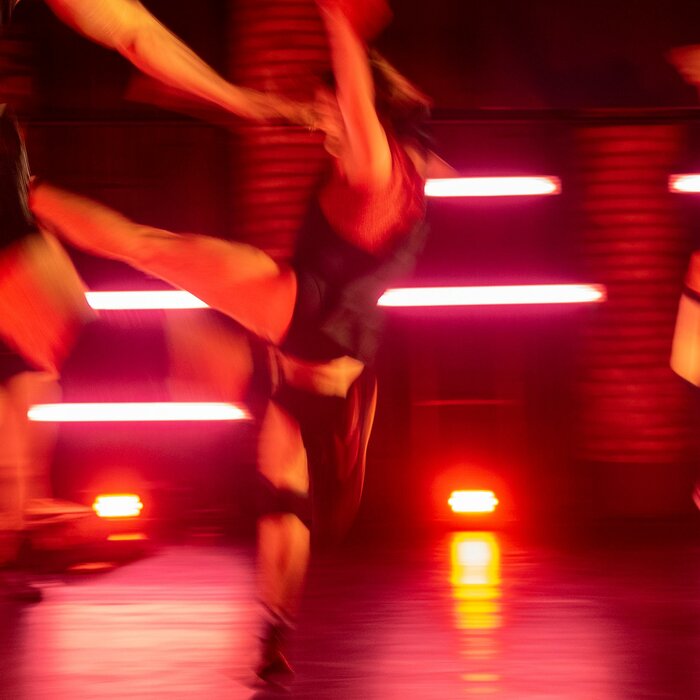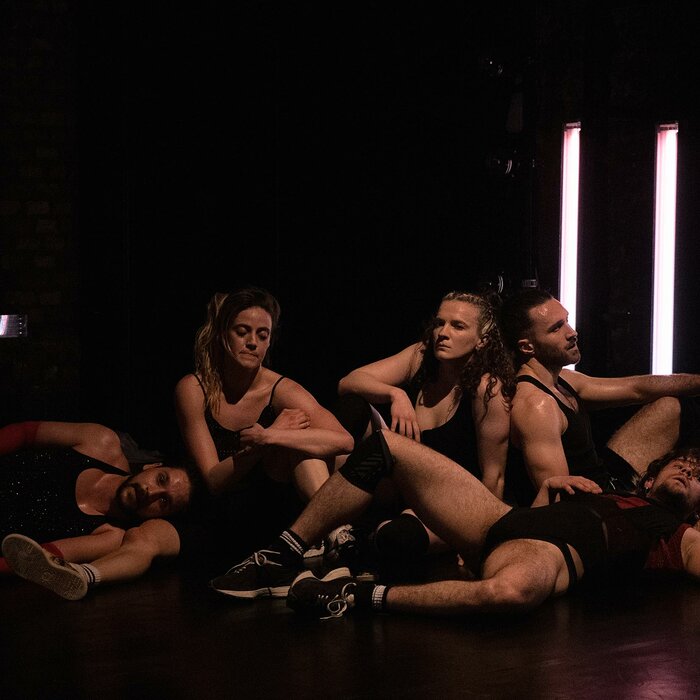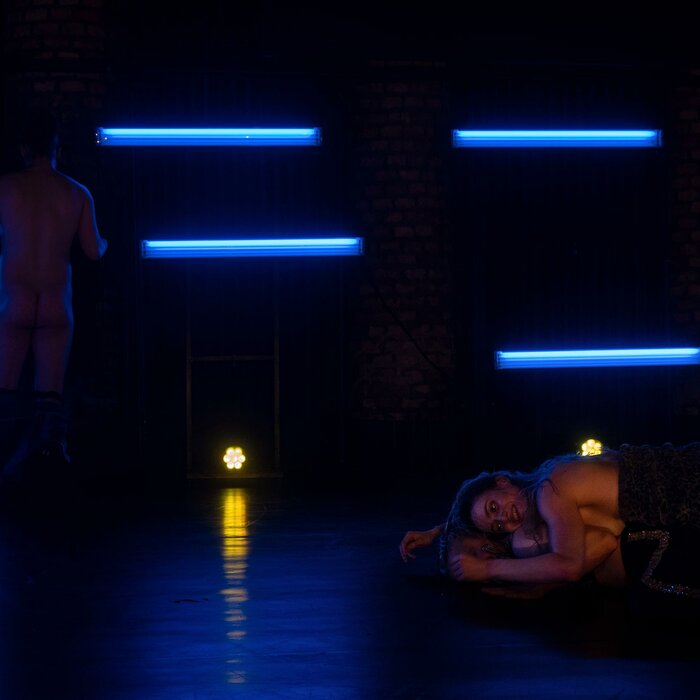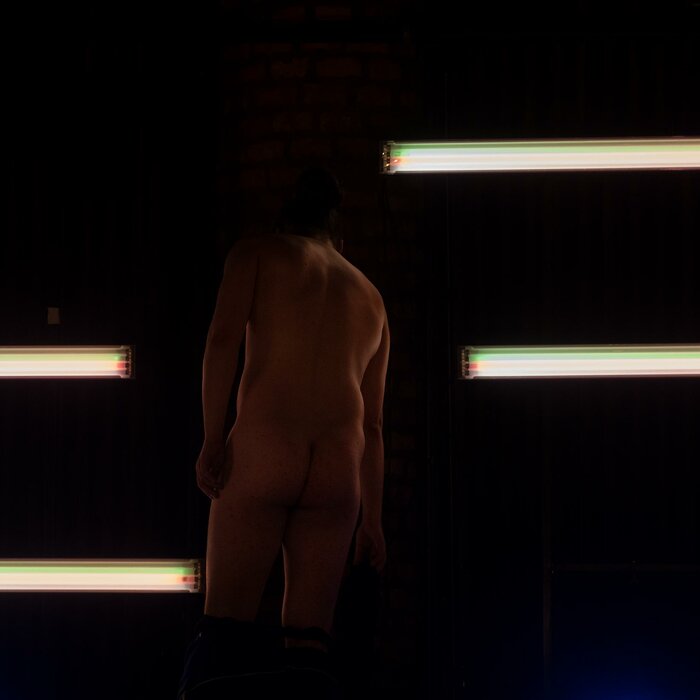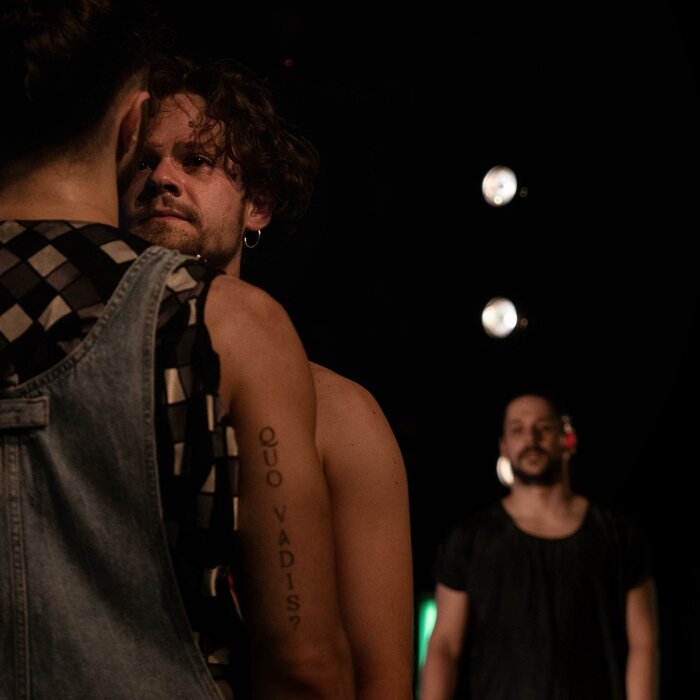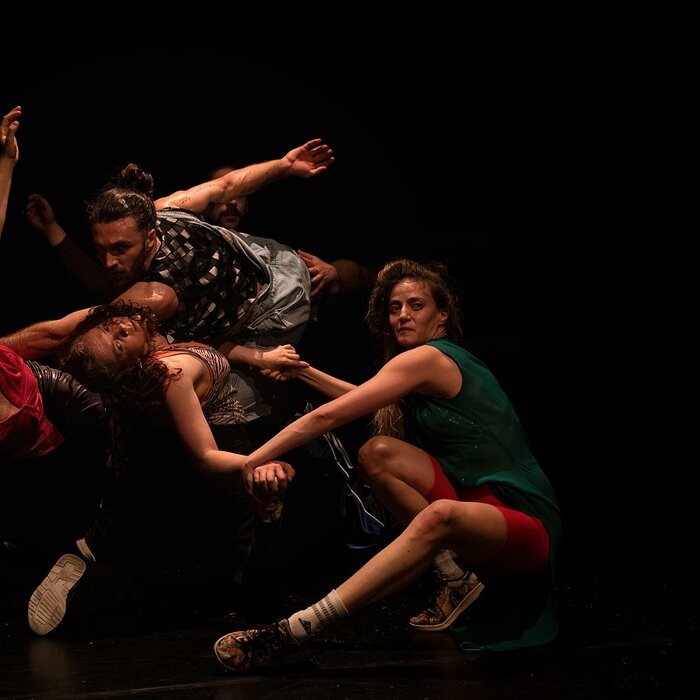The performance critically examines various mechanisms of normalization, oppression, and exploitation in personal spheres such as gender, sexuality, desire, emotions, and the body, into which capitalism, patriarchy, and other systems of repression constantly infiltrate. Drawing from queer Marxism – which re-examines traditional Marxist analyses and queer politics – the performance emphasizes the fluidity and complexity of identity as a foundation for critical action and the envisioning of a more just future. Through a comparative analysis of the intersections of queer culture, art, and Marxist ideology in different socio-economic contexts, from socialist and Western societies during the Cold War to post-socialist Eastern Europe, the artistic research and choreographic work sought examples of artistic practices directed against social and state dogmatism. The performance explores the legacy of queer emancipation as an ongoing process of constituting and distorting resistance, influenced by both Western 'liberal' societies and socialist values aimed at a more just society. It examines queerness as a space of empathy, vulnerability, intimacy and eroticism, perception, the challenging of norms, and, of course, expression.
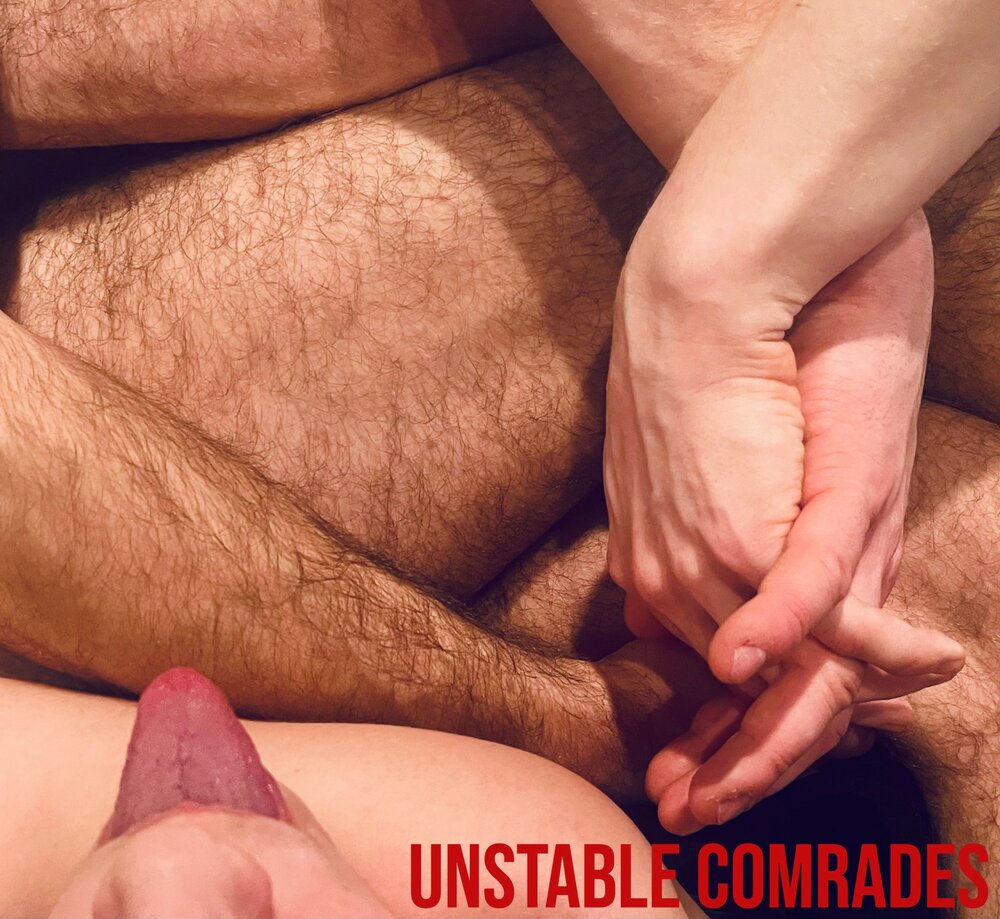
EN
Person(s) / Collective:
Igor Koruga
Title:Unstable comrades
Date of Premiere: 2024
Production:
Stanica servis za savremeni ples
Venue:
Theatre Atelje 212 Belgrade
choreographer:
Igor Koruga
dramaturg:
Dimitrije Kokanov
composer:
Vladimir Pejković
lighting designer:
Boris Butorac
dancer:
Tamara Pjević
dancer:
Jakša Filipovac
dancer:
Mariana Gavriciuc
dancer:
George Alexandru Pleșca
dancer:
Hunor Joseph Varga
executive producer:
Marijana Cvetkovic
organizer:
Olivera Kecojević, Teona Milićević
photographer:
Vladimir Opsenica
co-producer:
National Center for Dance Bucharest & Brain Store Project Foundation Sofia through South-East European Dance Stations (SEEDS), APAP-Feminist Futures, The Culture moves Europe mobility grant
Thank you:
Magacin Cultural centre Belgrade; Atelje 212 Theatre Belgrade


